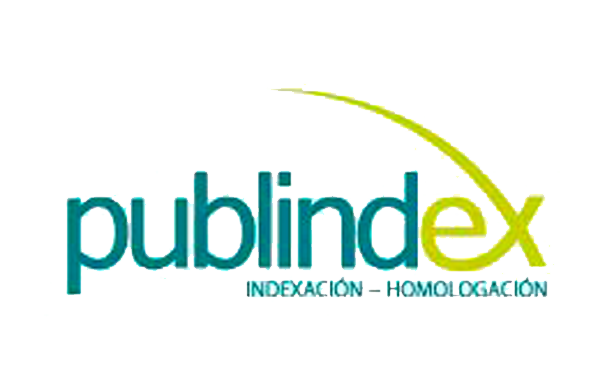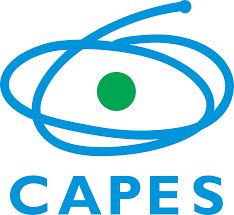State of Emergency and Restriction to the Right to Education in Colombia Due to COVID-19
- Articles
- Submitted: May 16, 2020
-
Published: October 19, 2020
Abstract
This research article seeks to address the problems caused by the Colombian Government’s declaration of a state of emergency to face the Covid-19 pandemic, which is reflected in the restriction of some fundamental rights, specifically the right to education. The main objective of the article is to cover the discussion on the fundamentality of access to the Internet and its concept as a guarantee of other rights. This study was developed under an analytical-descriptive approach since it breaks down several categories - states of exception, fundamental rights, access to the Internet - and concludes them together. The research took as main sources documents, references and previous research on the subject. The result of the research showed that with the current crisis generated by the coronavirus pandemic, almost all human activities -economic, social, and cultural- were suspended, causing the systematic violation of rights, including health and work, among others. The internet became the only tool available for the development of many activities including education. However, the lack of guarantees for access to this network prevents the materialization of this important fundamental right.
References
- Agamben, G. (2005a). State of Exception (trad. Kevin Attell). The University of Chicago Press.
- Agamben, G. (2017). The omnibus HOMO SACER. Stanford University Press.
- Agamben, G. (2005b). Estado de excepción Homo sacer, II, I (trad. Flavia Costa e Ivana Costa). Adriana Hidalgo editora.
- Alcalá, M. (2019). Desigualdad en el acceso a internet en México y la afectación en el ejercicio del derecho humano a la información. Revista Nuevo Derecho, 15(24), 55-70.
- Benavides, F. S. (2006). Excepción, decisión y derecho en Carl Schmitt. Revista Argumentos, 19(52).
- Balkin, J. M. (2014). Old-School-New-School Speech Regulation. Harvard Law Review, 127, 296-342.
- Camargo, P. P. (2008). Los estados de excepción. Editorial Leyer.
- Carpizo, J. (2000). Derecho a la información y derechos humanos. Instituto de Investigaciones Jurídicas UNAM.
- Congreso de la República de Colombia (1994, 2 de junio) Ley 137 de 1994. Por la cual se regulan los Estados de Excepción en Colombia. https://www.funcionpublica.gov.co/eva/gestornormativo/norma.php?i=13966
- Constitution Française (1958) https://www.conseil-constitutionnel.fr/sites/default/files/as/root/bank_mm/constitution/constitution.pdf
- Corte Constitucional de Colombia. (1992, 07 de mayo). Sentencia C-004 Eduardo Cifuentes Muñoz, M. P.). https://www.corteconstitucional.gov.co/relatoria/1992/C-004-92.htm
- Corte Constitucional de Colombia. (1992, 15 de octubre). Sentencia C-556 (Simón Rodríguez Rodríguez, M. P.). https://www.corteconstitucional.gov.co/relatoria/1992/C-556-92.htm
- Corte Constitucional de Colombia. (2009, 12 de febrero). Sentencia C-070 (Humberto Antonio Sierra Porto M. P. y Clara Elena Reales Gutiérrez, M.P.). https://www.corteconstitucional.gov.co/relatoria/2009/C-070-09.htm
- Corte Constitucional de Colombia. (2010, 10 de noviembre). Sentencia C-884 (Jorge Ignacio Pretelt Chaljub, M. P.). https://www.corteconstitucional.gov.co/RELATORIA/2010/C-884-10.htm
- Corte Constitucional de Colombia. (2011, 9 de marzo). Sentencia C-156 (Mauricio González Cuervo, M. P.). https://www.corteconstitucional.gov.co/RELATORIA/2011/C-156-11.htm
- Corte Constitucional de Colombia. (2020, 29 de enero). Sentencia T-030 (Diana Fajardo Rivera, M. P.). https://www.corteconstitucional.gov.co/Relatoria/2020/T-030-20.htm
- Cotino Hueso, L. (2020). La enseñanza digital en serio y el derecho a la educación en tiempos del coronavirus. Revista de Educación y Derecho, (21). https://revistes.ub.edu/index.php/RED/article/view/31213
- El Tiempo (2020, 6 de mayo). Rectores de universidades piden alivios al Gobierno. El Tiempo. https://www.eltiempo.com/politica/gobierno/universidades-alertan-de-disminucion-en-matriculas-492538
- Ferejohn J. y Pasquino, P. (2004). The law of the exception: A typology of emergency powers International. Oxford University Press and New York University School of Law, 2(2), 210-239.
- Fitzpatrick, J. (1994). Human Rights in Crisis: The International System for Protecting Human Rights During
- States of Emergency. University of Pennsylvania Press.
- Fuenmayor, A. (2004). Derecho de acceso de los ciudadanos a la información pública. Análisis jurídico y recomendaciones para una propuesta de ley modelo sobre el derecho de acceso de los ciudadanos a la nformación pública. Unesco. http://portal.unesco.org/es/file_download.php/561ff4bc2719856c5184270296fc48f5EL+DERECHO+DE+ACCESO+DE+LOS+CIUDADANOS+A+LA+INFORMACION+PUBLICA.pdf
- Loevy, K. (2016). Emergencies in public law. The legal politics of containment. Cambrige University Press.
- Mateo, M. (2020). #habilidades21 en tiempos de COVID-19. Banco Interamericano de Desarrollo. https://blogs.iadb.org/educacion/es/habilidades21
- OCDE (2016). Declaración ministerial sobre la economía digital: innovación, crecimiento y prosperidad social. https://www.oecd.org/centrodemexico/medios/declaracion-ministerial-sbore-la-economia-digital.htm
- OEA (1969) Convención Americana de Derechos Humanos. Art 13. https://www.oas.org/dil/esp/tratados_b-32_convencion_americana_sobre_derechos_humanos.htm
- ONU (1948) Declaración Universal de los Derechos Humanos. Art. 19. https://www.un.org/es/universaldeclaration-human-rights/#:~:text=Art%C3%ADculo%2019.,por%20cualquier%20medio%20de%20expresi%C3%B3n
- ONU (1966) Pacto Internacional de los Derechos Civiles y Políticos. Art 19. https://www.ohchr.org/sp/professionalinterest/pages/ccpr.aspx
- Osorio Montoya, R. O. (2020, 22 de abril). La educación jurídica en tiempos de coronavirus: las enseñanzas de los decanos de las Facultades de Derecho. Ámbito Jurídico. https://www.ambitojuridico.com/noticias/academia/educacion-y-cultura/la-educacion-juridica-en-tiempos-de-coronavirus-las
- Pinochet Cantwell, F. (2008). El derecho de internet, una nueva rama del derecho. Revista Trilogía. https://app-vlex-com.usco.basesdedatosezproxy.com/#WW/vid/40133781
- Reglitz, M. (2019). The Human Right to Free Internet Access. Journal of Applied Philosophy, 37, pp. 314-331. https://doi.org/10.1111/japp.12395
- Rodríguez Prieto, R. (2018). Educar en internet. Una propuesta para la construcción democrática de la red. Revista Internacional De Pensamiento Político, 8, 161-176. https://www.upo.es/revistas/index.php/ripp/article/view/3663
- Salazar-Jaramillo, R. (2014). Derechos humanos e internet. Derecho y Realidad, 12(24), 279-288. https://doi.org/10.19053/16923936.v2.n24.2014.4518
- Scheppele, K.L. (2004). Law in a time of emergency: states of exception and temptation of 9/11. Journal of Constitutional Law, 6(5).
- Schmitt, C. (2005). La dictadura. Desde los comienzos del pensamiento moderno de la soberanía hasta la lucha de clases proletarias. Alianza Editorial.
- Schmitt, C. (2009). Teología política. Editorial Trotta.
- Unesco (2020a). COVID-19 Educational Disruption and Response. https://en.unesco.org/themes/educationemergencies/coronavirus-school-closures
- Unesco (2020b). COVID-19 y educación superior: De los efectos inmediatos al día después. Análisis de impactos,
- respuestas políticas y recomendaciones. http://www.iesalc.unesco.org/wp-content/uploads/2020/05/COVID-19-ES-130520.pdf
- Unesco-Iesalc (2020). El coronavirus covid-19 y la educación superior: impacto y recomendaciones. https://www.iesalc.unesco.org/2020/04/02/el-coronavirus-covid-19-y-la-educacion-superior-impacto-yrecomendaciones/
- Vanegas Gil, P. (2011). La Constitución colombiana y los estados de excepción: veinte años después. Revista Derecho del Estado, (27), 261-290.
- World Health Organization, WHO (2020). Naming the coronavirus disease (COVID-19) and the virus that causes it. https://www.who.int/es/emergencies/diseases/novel-coronavirus-2019/technical-guidance/naming-the-coronavirus-disease-(covid-2019)-and-the-virus-that-causes-it


 Attribution-NonCommercial 4.0
International (CC BY-NC-ND 4.0)
You are free to:
Attribution-NonCommercial 4.0
International (CC BY-NC-ND 4.0)
You are free to:













